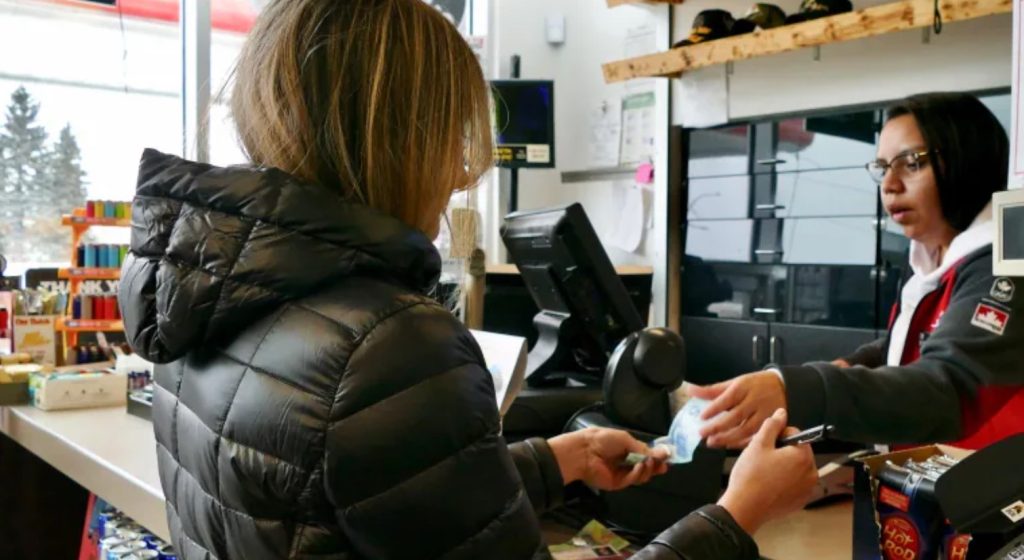
With inflation at highest point in decades, Manitoba experts and consumers suggest ways to cut back on costs
With the costs of utilities, food and gas all rising at once, you might be looking for ways to save money.
But is there really a way to do that at a time when inflation has reached its highest point in decades?
Good news: experts and consumers who have made changes in their own lives say there are plenty of ways you can save a few bucks on your bills, at the cash register and at the pump.
It just takes a bit of strategy.
One of the easiest ways to save is something you can do without leaving home: cutting back on what you spend on utilities.
When it comes to water, turning off the tap while you brush your teeth and swapping a long shower for a shorter one or a partially filled bath are good first steps, says Colleen Ans, co-ordinator of the Green Action Centre’s Living Green, Living Well program.
You can also save your grey water — water already used for things like washing hands or dishes — and repurpose it to flush your toilet or water plants.
Collecting the water that flows as you wait for your shower to warm up or setting up a rain barrel outside can help with that too.
And it can all make a big difference on your bill, Ans said, especially when it comes to your toilet, “where there’s about 11 litres of water [used] per standard flush.”
“Even eliminating one flush a day makes a huge impact,” she told host Marcy Markusa in an interview with CBC’s Information Radio.
As for electricity and natural gas, sealing up and weather stripping your home so warm air can’t escape through doors and windows can help a lot, says Tracy Sterdan, a spokesperson for Efficiency Manitoba.
Turning off lights you’re not using can help too, while turning your thermostat down three to four degrees when you’re asleep or away from home can help you save up to four per cent on your bill, Sterdan told Markusa.
And if you can afford it, renovating your insulation and heating systems could save hundreds of dollars a year — and her Crown corporation has an assistance program that can help cover some of those costs, she said.
“In the end, even small actions add up. So it’s really a good idea to be very mindful of our energy habits.”
Reconsider grocery habits
One self-described “cheapskate” says if you want to save money at the grocery store, there are three things to keep in mind: read the flyers, know your prices and get there early.
That will help you know what’s on sale, decide whether it’s worth it and actually get it before it’s sold out, said Winnipeg deal hunter (and former CBC technician and traffic reporter) Jeff Malcovish.
“I don’t like to spend a ton, and if I can find a bargain, I’m out there,” Malcovish told Markusa.
That’s why he recently ended up making and freezing 10 meat loaves, after coming across a discounted tray of beef. All in, the dinners cost him about $3 each, he said.
And if you can afford to stock up on discounted items, that can help you save in the long run, Malcovish said.
“Don’t just buy two, buy 10 — especially on non-expiring products,” he said.
But sometimes, saving money is about what you don’t buy — especially if you’re going to end up throwing it out, says home economist Getty Stewart.
In the average household, that waste adds up to about $1,700 worth of food every year, Stewart said.
But planning your shopping around exactly what you’ll use each item for and going to the store less often can help.
“[Start] from a perspective of, ‘What do I already have? And how can use that to make meals for the week ahead?'” she told guest host Faith Fundal in an Information Radio interview.
Rethink taking the car
Some may also be looking at how to reduce what they pay at the pump, with the price of gas soaring.
Gas prices shot up to record levels in Manitoba earlier this week, and are expected to remain at that level, or even climb, in the immediate future, experts say.
But some Winnipeggers, like Erin Riediger, have found ways to avoid the direct effects of the skyrocketing prices.
Riediger ditched her car in 2016 for a membership with the car-sharing service Peg City Car Co-op. That change — along with taking the bus, biking and walking more — helps her save hundreds of dollars a year, she said.
Before she got rid of her car, Riediger said she was probably spending close to $750 a month on gas, maintenance and car insurance.
But in all of 2021, she spent a total of $1,722 — or about $144 a month — on transportation, including car co-op costs, bus fare, bike repairs and car rentals for summer road trips.
























